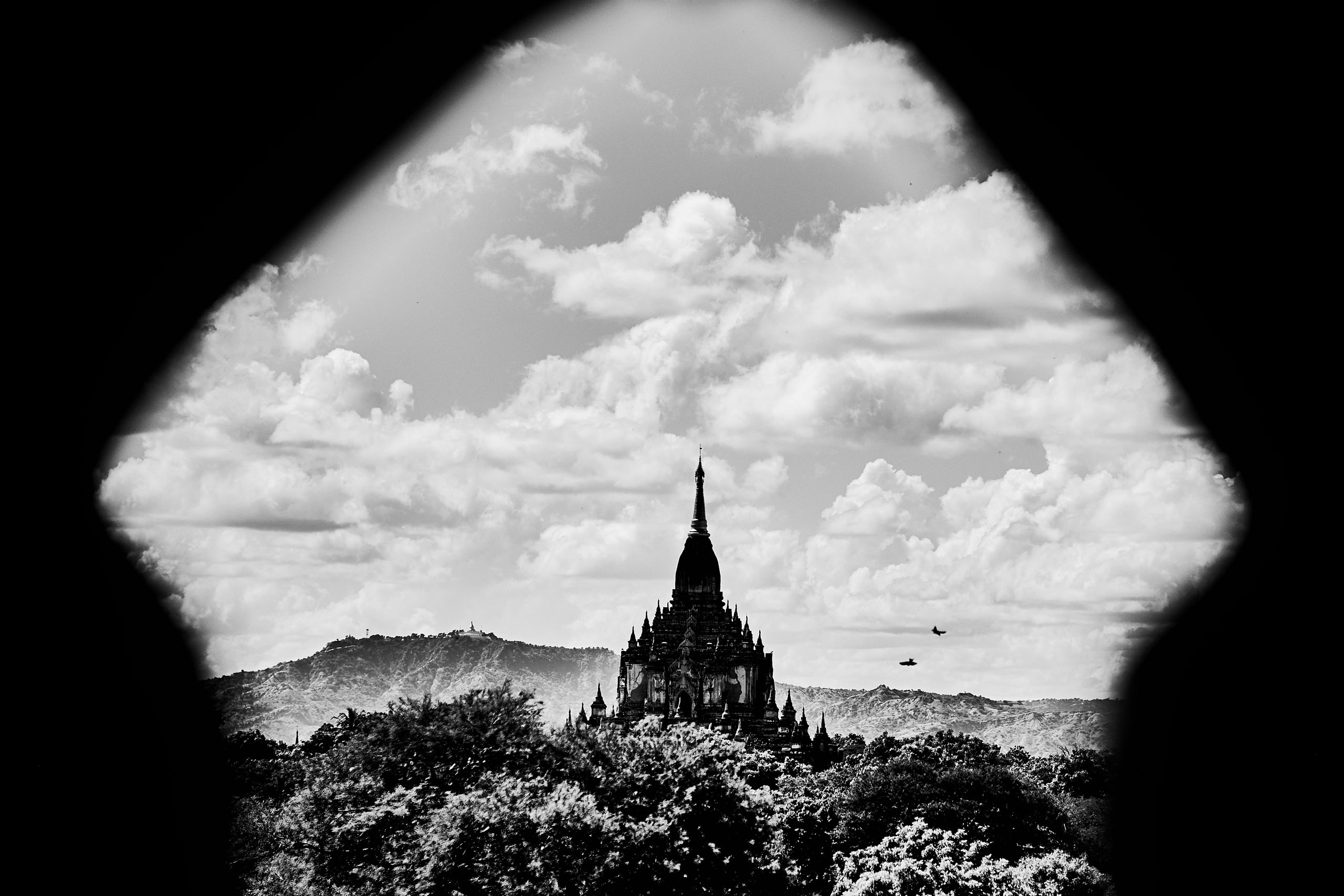 BURMA WAS AN ISOLATED COUNTRY IN SOUTHEAST ASIA UNDER MILITARY DICTATORSHIP UNTIL THEIR 2010 ELECTION, WHICH REINSTATED CIVILIAN GOVERNMENT AND OPENED UP BURMA TO THE OUTSIDE WORLD. SINCE THEN THERE HAS BEEN CONTINUOUS CONTENTION AND VIOLENCE BETWEEN THOSE FIGHTING FOR DEMOCRACY AND THE STILL POWERFUL BURMESE MILITARY. AT THE SAME TIME, TENSION BETWEEN THE NATIVE BURMESE AND A GROWING NUMBER OF ISLAMIC REFUGEES CALLED THE ROHINGYA HAS RESULTED IN A TERRORIST ORGANIZATION OF RADICAL BUDDHISTS ENGAGING IN DEADLY ATTACKS ON THE MUSLIM POPULATION. THIS STORY HAS NOTHING TO DO WITH ANY OF THAT.
BURMA WAS AN ISOLATED COUNTRY IN SOUTHEAST ASIA UNDER MILITARY DICTATORSHIP UNTIL THEIR 2010 ELECTION, WHICH REINSTATED CIVILIAN GOVERNMENT AND OPENED UP BURMA TO THE OUTSIDE WORLD. SINCE THEN THERE HAS BEEN CONTINUOUS CONTENTION AND VIOLENCE BETWEEN THOSE FIGHTING FOR DEMOCRACY AND THE STILL POWERFUL BURMESE MILITARY. AT THE SAME TIME, TENSION BETWEEN THE NATIVE BURMESE AND A GROWING NUMBER OF ISLAMIC REFUGEES CALLED THE ROHINGYA HAS RESULTED IN A TERRORIST ORGANIZATION OF RADICAL BUDDHISTS ENGAGING IN DEADLY ATTACKS ON THE MUSLIM POPULATION. THIS STORY HAS NOTHING TO DO WITH ANY OF THAT.
ANSWERING MACHINE, STORY OF THE FOREST A, MORNING SCENE, SWAMP, STORY OF THE FOREST B, POTTERY VILLAGE, ANTS, STORY OF THE FOREST C, PAGODA GUARD, A KING, THOUGHTS ON WATER, FUNERAL, PERSONAL LETTER
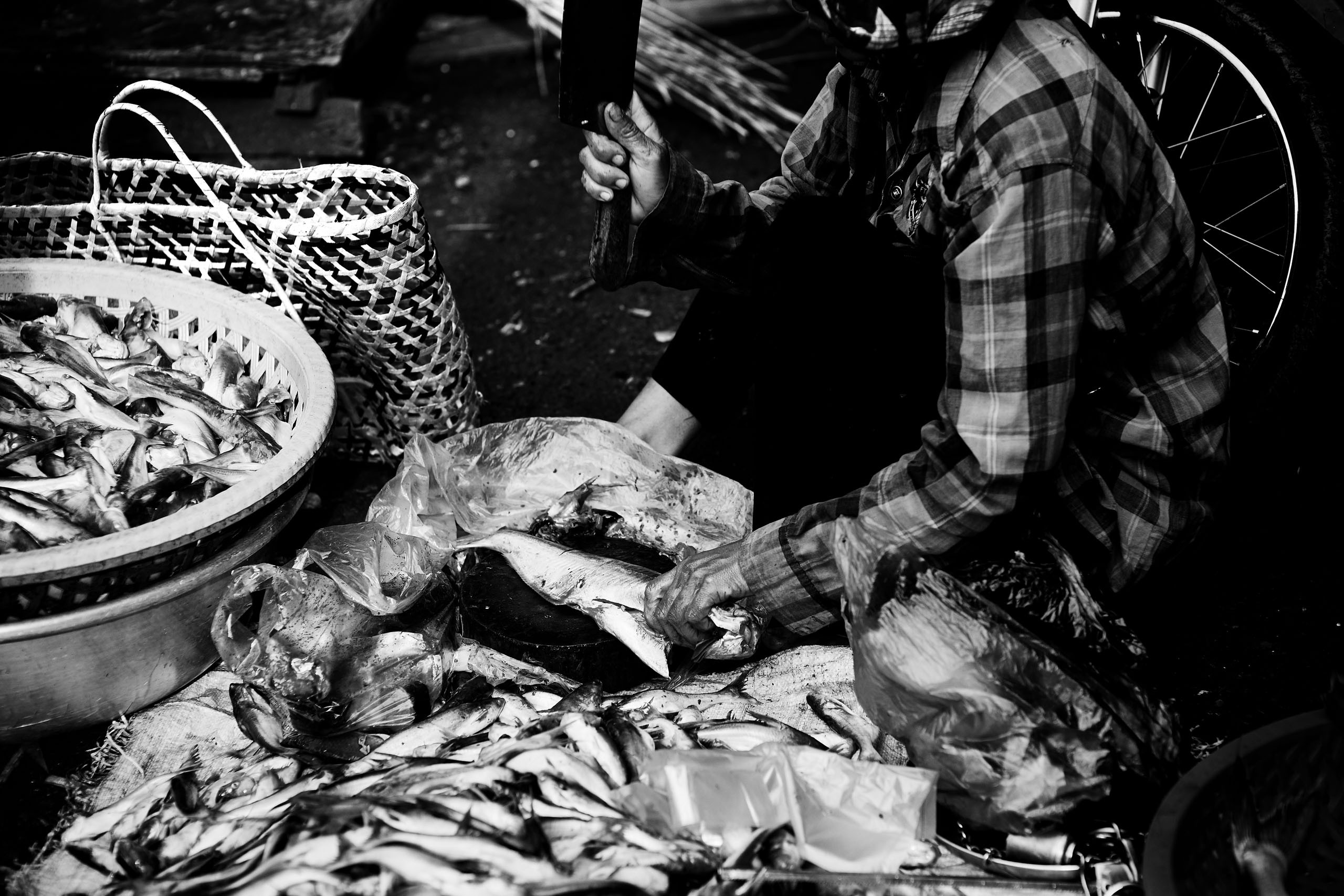
Answering Machine
INT./EXT. ANSWERING MACHINE - NIGHT
Hear rain, crowds of people, the night market, traffic, tuck-tuck cabs, motorcycles. Hectic sounds in Southeast Asia.
ANSWERING MACHINE
Ring back tone. Ring back tone. Ring back tone.
%!&?
Hey this is %!&? — Sorry I’m not here right now. I’m actually gonna be gone for a little while. Uh few weeks probably. Everything’s fine. Just wanted some time to, you know, brake and figure some stuff. I’ll be in Burma, uh, Myanmar. It’s just uh, kinda somewhere I’ve always wanted to visit.
If this is #### calling, don’t worry, I’ll write a few pieces on the trip. It’s supposed to be a really beautiful place, lots of temples and things like that. I’ll let you know when I’m back. Uh yeah. (Click)
ANSWERING MACHINE
At the tone, please record your –
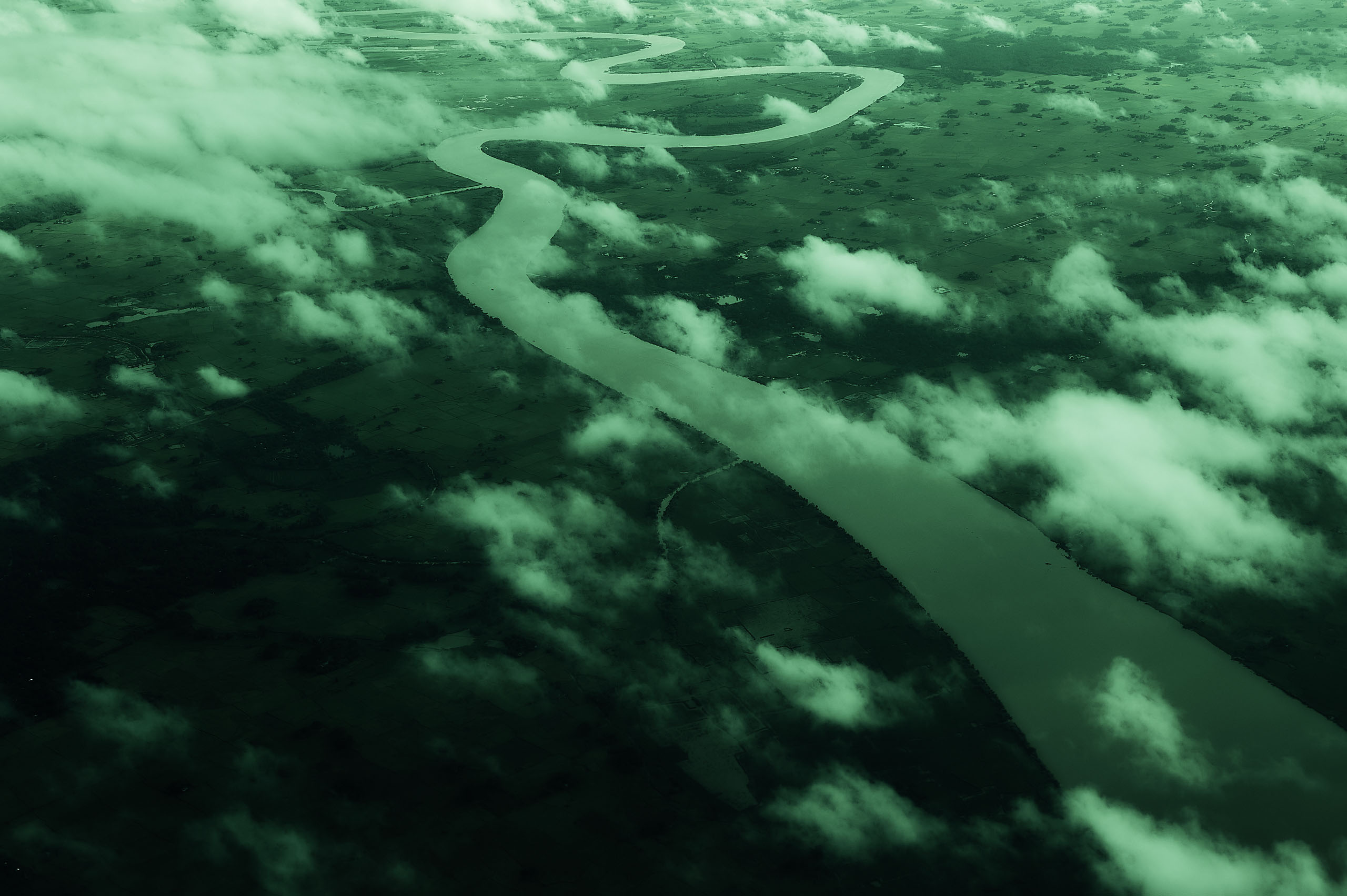
Story Of The Forest A
Up the tree, along branches, quickly. Bag still in teeth. From the end of one to the next branch. Jump and grab tight. Keep jaw clenched. Lots of feet chase. Big, loud feet. New branch snaps. Fall. Grab another. Leg is cut. Bag still in teeth. Get back to the tops of branches. Hear yells, snaps, and chasing stops. From quiet to loud snaps. Branches on one side break, and on the other side, and loud, and all around, and very loud. Rush from one tree to the next with everything popping and breaking everywhere. Ears are crying. The forest is exploding. Snap. The foot. Drop the bag. Snap. The back, to the chest. And nothing…
He picks up the bag and holds it, to show the others.
“Yes, fine, take. I could never move it now.” Six people on the ground. A trembling gun lowers slowly, still aimed. A skinny man in a torn, grey shirt holds the gun and stares at an old man, in red robes, while he continues speaking. The old man says something ominous about consequences to come from the young man’s actions. He seems very wise to the sweaty, shaking man in the torn, grey shirt.
Eyes open slow. Shapes start to form. Lights brighten and colors saturate. Stomach feels sore and sick. Five people lay on dirt ahead. Two people stand, one speaking to the other. A loud snap, and now one man is standing and six lay ahead. He turns and walks toward me. Sit up.
“you’re up?” Mouth is dry, and throat is clogged. Try to clear it. Cough. Cough up a lot. “Ok, relax.” He digs through a small bag hanging from his hip. Finally speak. “What did he say?” He pulls gauze from the bag. Cough up more. “Nothing important. Stop talking.” He wraps the stomach with bandages. He wraps tight. Cough again and feel sharp pain in the stomach. Colors start to fade, lights dim, shapes lose their form, and eyes slowly close again…
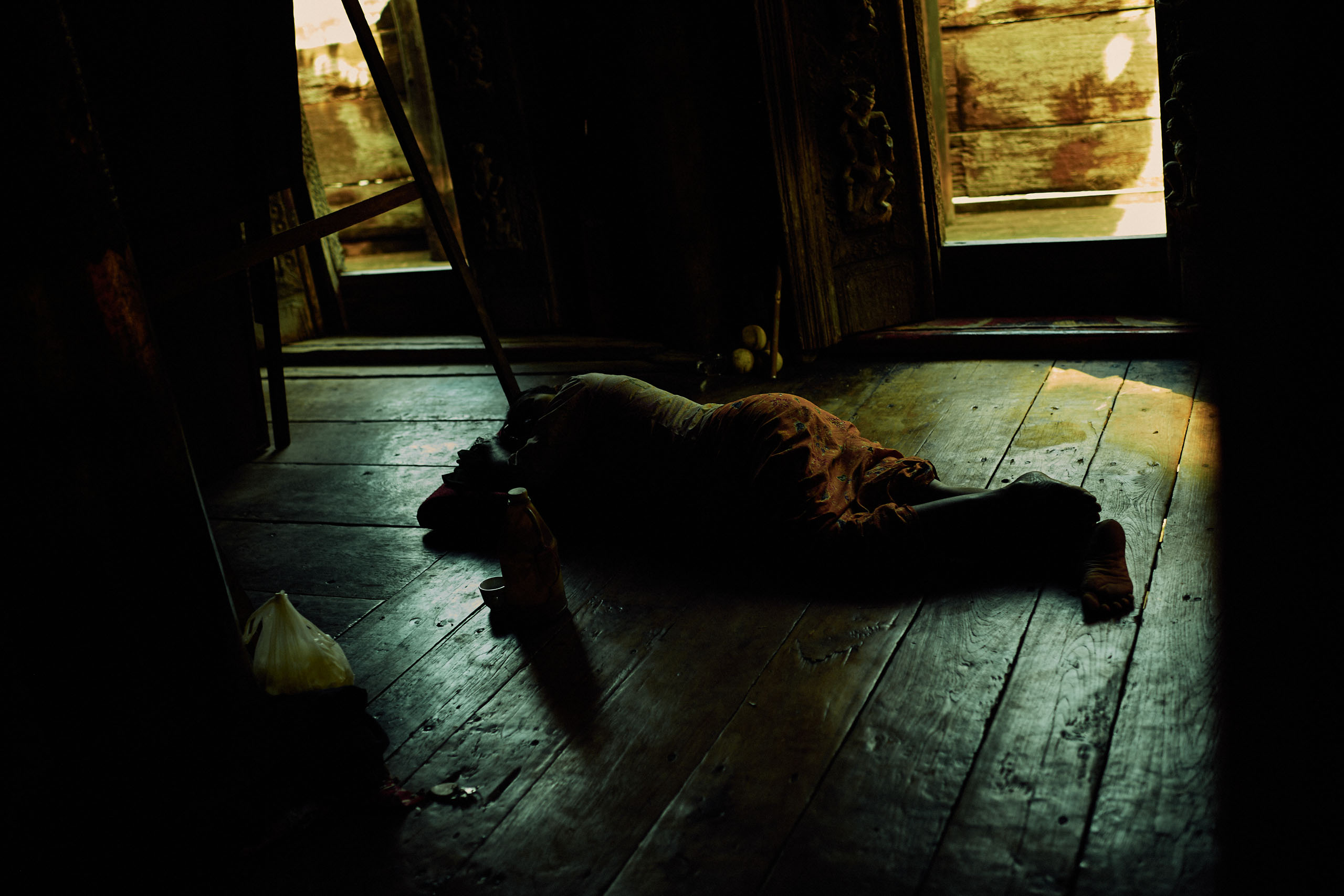
Morning Scene
Laying down, comfortable, staring off behind eyelids. Close enough to sleep. Thoughts on too many things to remember, waiting for eyelids to turn red and listening for the movement to start back up. Six nights in a row. That ties the record. Hear them loading outside. Same sounds as other mornings. Hear only creeks from them walking back and forth over long wooden planks bridging the boat and bank. They’re up early every day, lifting and moving what look like very heavy things, crossing planks onto the boat and back. No talking, no facial expressions, focused only on loading the boat. Labor looks peaceful the way they do it, like ants. They show no signs of stress or fatigue, move neither very fast or slow, and don’t seem noticeably happy or sad about the work they do. They just do it.
Hear splashes, things being dropped and breaking, people yelling. These are sounds I haven’t heard here. Get up to see the source. Too fast. Head rushes. Legs feel unstable. Things start to get darker. Take a few steps, and hold onto the window sill while the body adjusts to standing, and the scene, through glass, becomes clear. An alligator has a man by the leg. Could also be a crocodile. Can’t tell the difference from this far. Not even sure if I could up close. Stand in the window and watch, deciding if I should find out. Probably too far. Would probably be too late. Probably couldn’t help. They crowd around the scene. Some throw rocks while the unidentifiable monster slowly drags the man toward water. Definitely too late now. Keep watching.
The monster is halfway back in the river, still dragging. The man has gone limp. Out of the boat, over wooden planks, through the hysterical crowd, three men with machetes charge and swing at the undefined creature. Quickly the monster releases, and slithers back under the surface. A few cheer the men. More go to help the victim. The rest start back, loading the boat. The man doesn’t move. A woman hugs him and cries loud. Hear it clearly. The three men and the ones who cheered also return to loading the boat. Two men bring a blanket from a house close by. The women lets go of the limp man, picks up a small child on the ground next to her, and watches as the two men lay the blanket next to the man, roll him onto one half, and fold over the other half, covering him. The men lift the folded blanket like a stretcher and leave while the sad woman follows, child in her arms. Keep watching.
Everything looks the same as before the incident. See no change in them. Same pace, same expressions, same sound. Hear only the creeks of wooden planks. It feels different now. The scene doesn’t look peaceful; more somber. The people don’t look relaxed; more resigned. The sad woman with the child is back. She doesn’t look sad anymore, and the child is gone. She’s as calm as the others, back to loading the boat. They really are like ants.
Someone knocks. Open. A man is there, asking how I slept. “Great, thank you.”
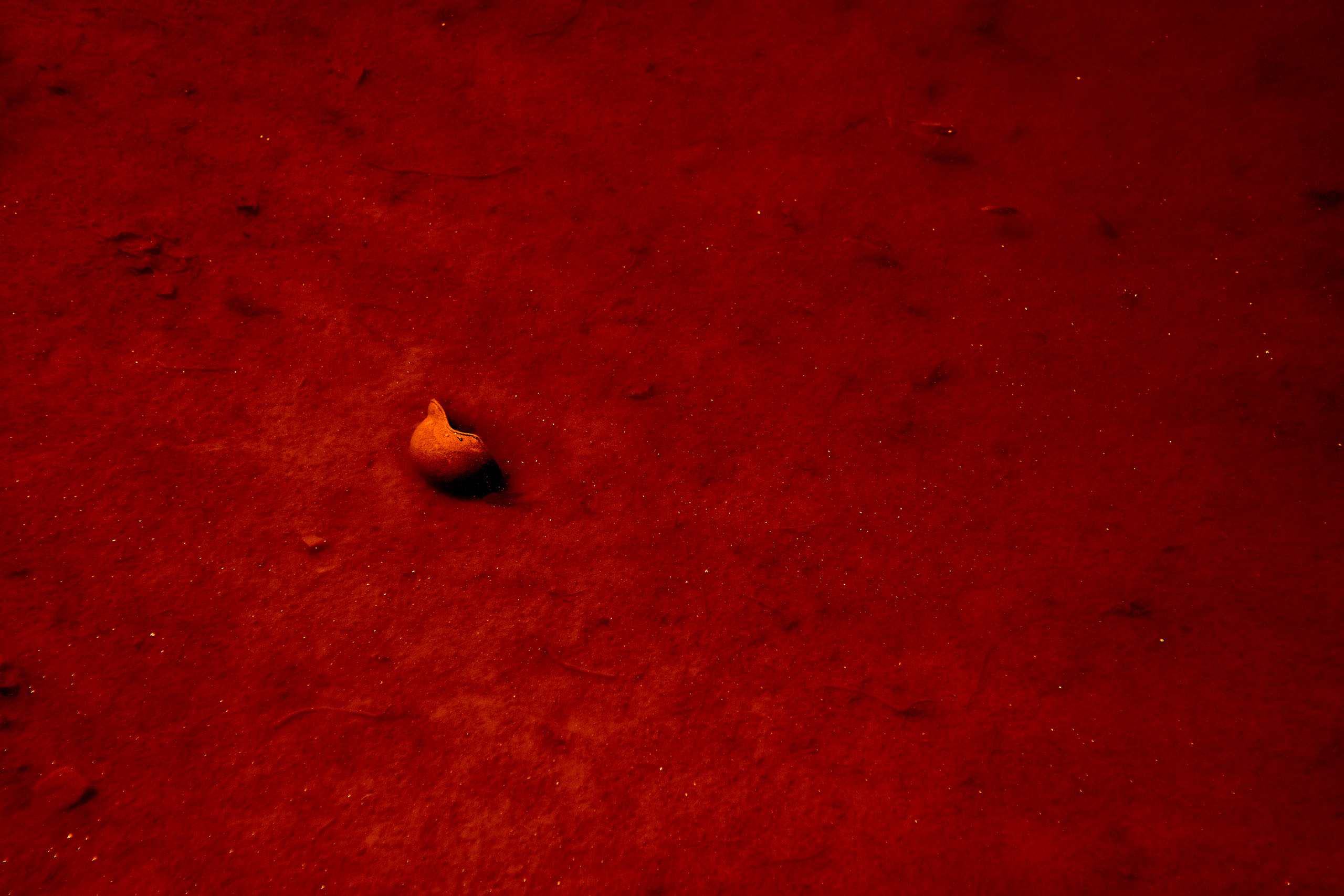
Swamp
Hear buzzing, and croaking, and hissing. Clouded water to the waist. Feel movement in currents beneath the surface. All around things swim and they stalk. Continue, and feel the swamp settle. They make their choices. Keep moving, tense, waiting.
Hear the first pounce in a splash. The ones closest yell and splash more in attempts to sprint through water, arms raised, letting as little under the surface as possible. They’re too loud. Be found. Bullets fire. Hear snaps, and splashes, and yells, all within that dull buzzing.
With stealth debunked, resort to haste. Try to run, but be made slow in the water. Yell, but be made silent in the noise. Hope it’s a dream. Don’t stop. Keep going, and on the next step, drop deeper. Surface meets the chest. Be stuck. Pull and yank, but be stuck. Others running by stop to help, but move on once the hopelessness is realized. Blame each new person less and less. Start encouraging each new passerby to pass, and not to bother. A second chance to surrender. This time take it, and just wait.
See a man run past, and step even deeper. Another one stuck. His hair floats on the surface, his head just below. He struggles at first, then relaxes. See forearms join hair at the surface. Enjoy the company for a minute, until he vanishes downward. Don’t worry. You will join soon. I move.
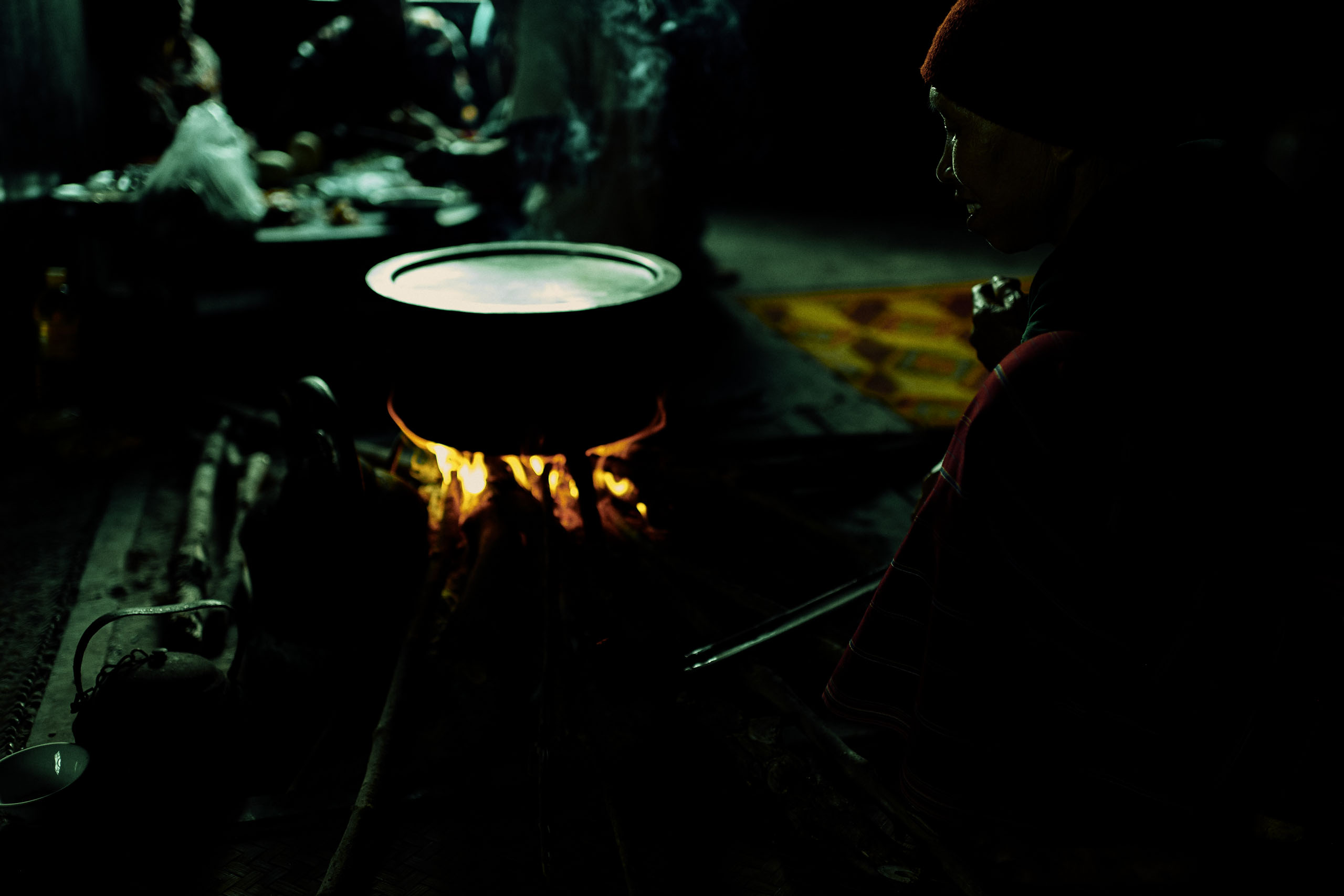
Story Of The Forest B
In a quiet place, stop by water, put bag down, and drink. Another comes to drink, sitting not far by. Check on it. The other grows at each glance. Too close. It reaches for the bag. Grab it, quick. Pull and yank. More of us gather, watching from branches. Hear excitement growing. Too many. Bite. The other lets go, and all around the branches erupt. They move. Leave fast, bag in teeth, clenched. Through the branches, over men piling fruit and burning sticks. Lose the ones chasing, at the fruit. Keep moving. Cross men that stand and watch the branches closely. Pass, and hear yells. Hear feet begin chasing.
Eyes open, slow. Stomach hurts. It stinks. Head is light. See a still, grey blur ahead, and a red blur, moving in place. Watch till the grey recognizes me and begins moving, getting bigger and more clear. A skinny man, in a grey shirt, unwraps brown bandages from the stomach, and replaces them. Now he maintains definition as he shrinks back to rejoin the red blur, fire, and further back, still slightly blurred, see it, covered in red robes.
Watch while he cooks. His shirt is old, with stains and tares, the only shirt I’ve seen him wear. When he finishes, two bowls are filled. Feel sick the more I eat. Cough. Keep coughing till it all spills out, red. Watch the puddle blur and dim to black. Eyes close. Coughing slows. Relax. Back to sleep.
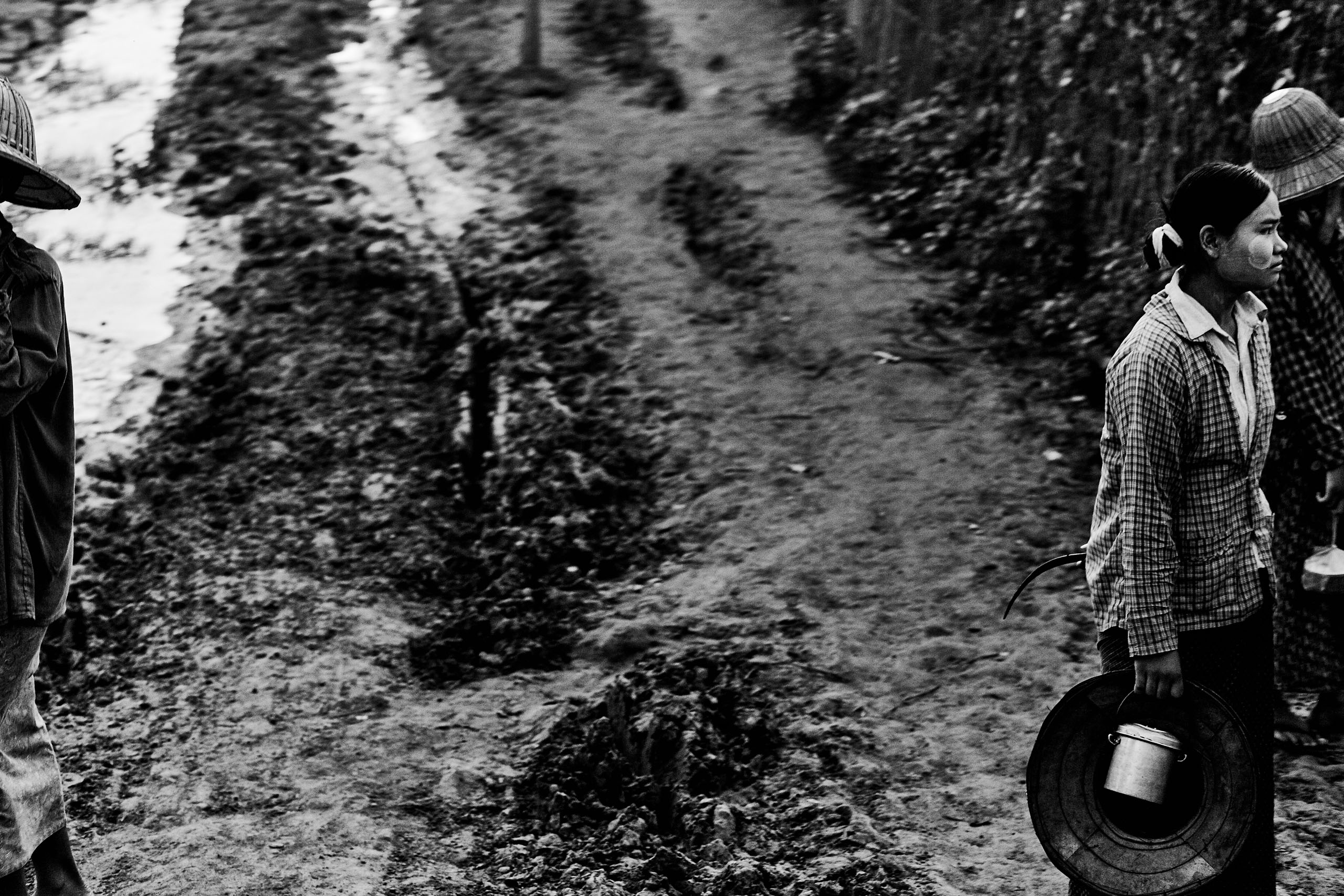
Pottery Village
Win Yin, Pottery Village. They make pottery, and only pottery, all of them. We dock to unload supplies for the village, and replace it with their only export. While they work, I explore and talk to some of the villagers. I’m told of one potter recognized as top in the village. They tell me he’s enlightened. I’m told he’s a very busy potter, but unusually free on time today. I ask to meet him, and am directly brought to his hut. The hut is big, and temperatures rise the closer we get. Inside glows red. I can see the air boiling. I sweat.
He moves quickly, with no calm, like he’s missed a deadline. The fastest man I’ve seen in this country, still no faster than most waiters in the west. He paces from one glowing basin to another. We never make eye contact. He speaks English. I ask him boring questions for a few minutes while he works. The men who brought me start leaving the hut in order of their stamina. “You don’t look very peaceful for an enlightened person.” He laughs and nods his head. I ask him for wisdom. He told me the process of pottery, in great detail, the whole time quickly pacing between ovens and basins, checking and retouching constantly.
I assume the pottery lecture was riddled with allusions to all kinds of high-minded, enlightened ideas and messages, but I was too hot to ponder. I thank him for the wisdom and excuse myself, regretful about missing his lesson. At least now I know how to make a good pot from scratch.
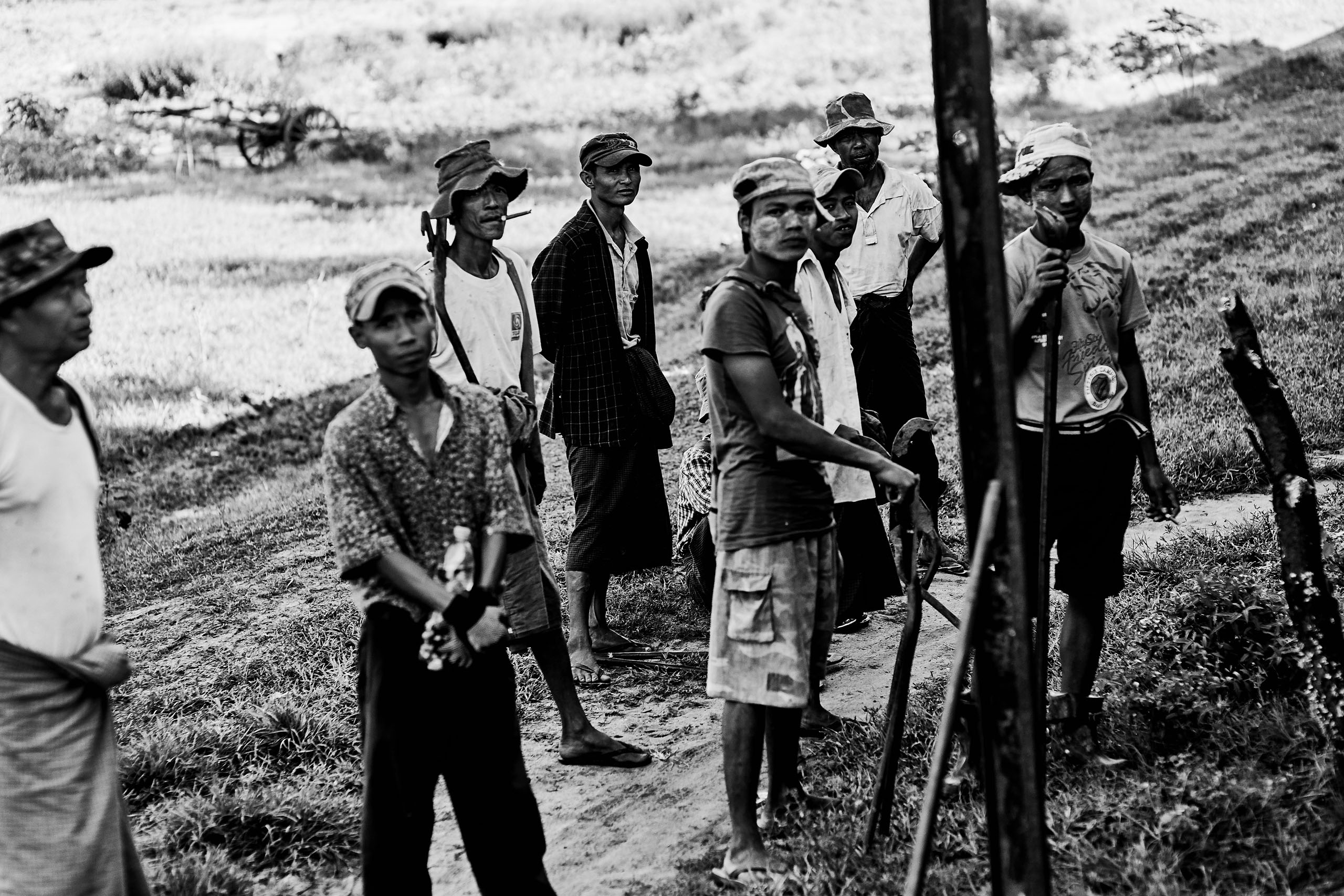
Ants
As old as dinosaurs, living on six of seven continents. A population of ten quadrillion, with the same combined mass as humans on the planet. They build huge underground colonies, with hierarchies that war with other colonies, and take back slaves in victory. They keep aphids as cattle, protecting and housing them, to milk for honeydew. They have a hive mind, developed through a language of pheromones. Information relayed in unexplained trails, left behind to be picked up and unbiasedly experienced. Over time, fully pure experiences solidify a full, untangled connection between the goals of one ant and every ant. Each moving tied to the rest with its free will still intact. In water they create a raft of themselves, ones below water constantly switching with ones above. This process keeps them buoyant, moving, and with plenty of oxygen. Ants are dope.
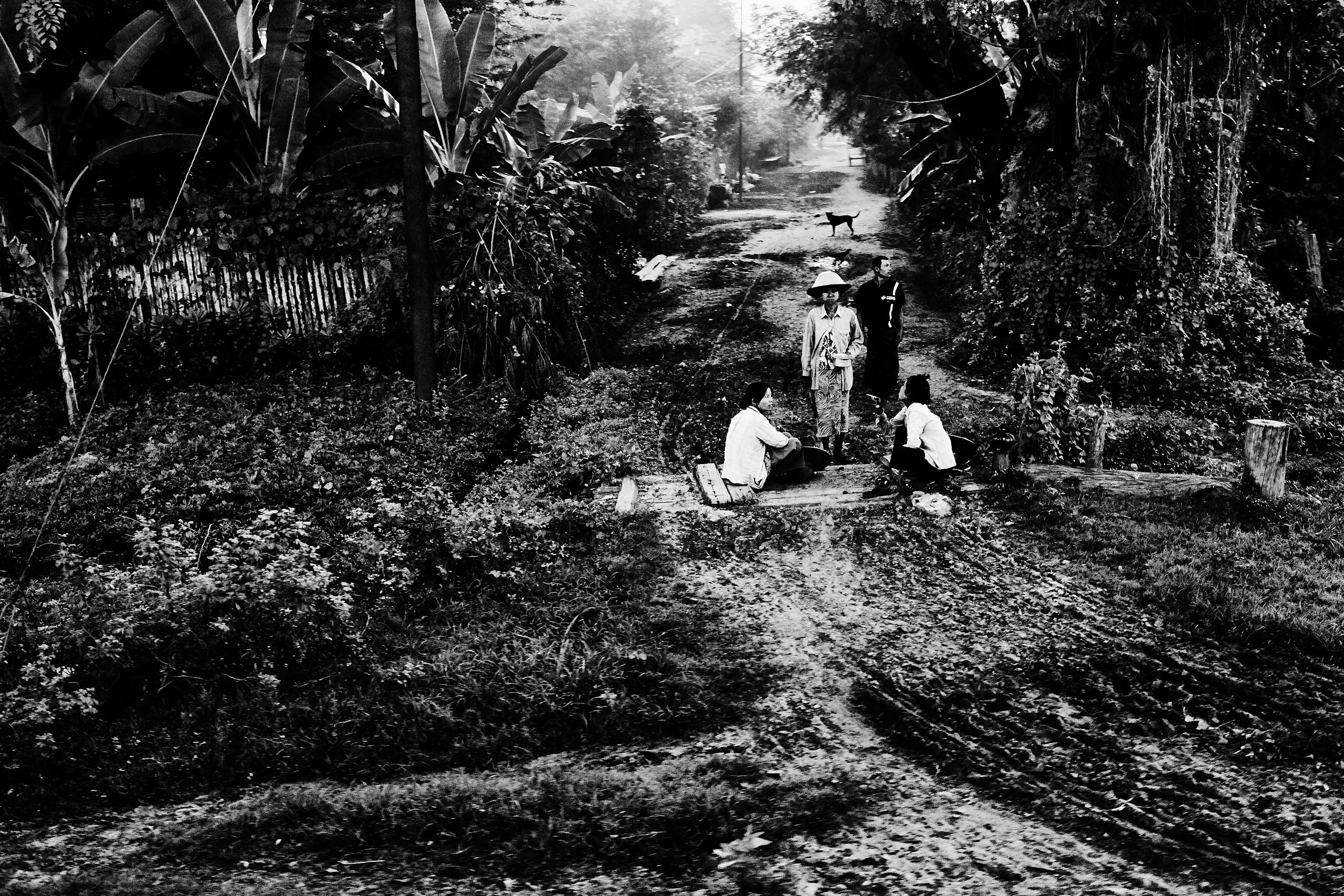
Story Of The Forest C
Vibrations fill the branches. Rumbling begins, and gets louder. The forest shakes. Trees fall. Hurry, branch to branch. Hear a loud ring from close by. Follow it. Every new branch is less stable. Stop at a building, in half. Through the crack, along straight branches, over big rock and metal pieces. Move room to room deeper inside, while shaking subsides. Pass above men that stand still and look outward.
Reach the deepest room. See it empty, except a small brown bag at the center. Take it. Leave and be seen. Below they yell and throw things. Hurry out, bag in teeth. They chase for a little, until we lose each other.
Eyes open, again, for another day. Bandages are black, in the stains and the ants. He’s run out of replacements. Fire is kept up with branches, but food has been finished for days. He tightly rations the water, and drinks none recently. He comes with this morning’s portion. I ask to be let go, again, for another day. Water is forced in my mouth. My body is too weak to refuse. On other days, he tells me I’m needed for when help comes, to translate. He never speaks now. At first he kept it hidden under robes, but now leaves it out, hoping to attract the ones he waits for.
Today is the most tired I’ve seen him. His body is dry. He serves my breakfast with eyes closed and no answer. When the water is gone in me, he drops the cup and limps back and stands over the fire, before collapsing in. Now relax and wait with the ants. Should be no more than three days I’m sure. Lower eyelids, and sleep.
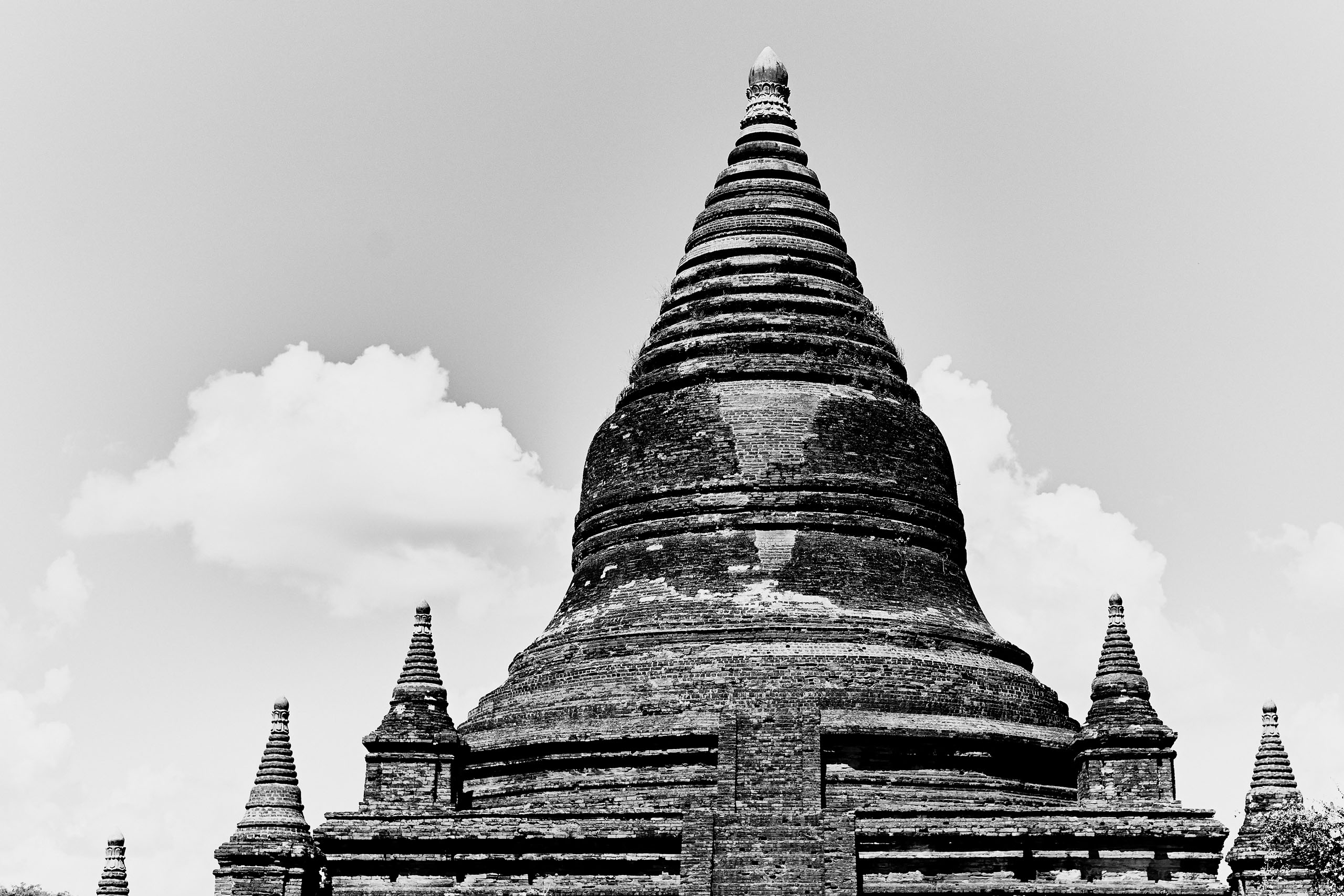
Pagoda Guard
Two thousand today, from thirteen thousand in the ninth century. The ones that survive do so through donations, and are maintained by guardians, tasked with caring for the sights in return for nearby land, allotted for them to farm. Through the translator, I speak with the guard at a pagoda we visit, and ask about her daily routine. I’m told she wakes up to no alarm, then makes tea and breakfast. When finished, she tends to her garden, watering plants in order from driest to most healthy. Next, she checks every part of the pagoda, patching and repainting in a similar order to her gardening. By the time her tasks are done, she is ready for sleep, and the timing of this determines when she will wake up tomorrow.
I leave a donation for the pagoda, and she gives me a fruit or vegetable from her garden. I don’t recognize it, but thank her through the translator.
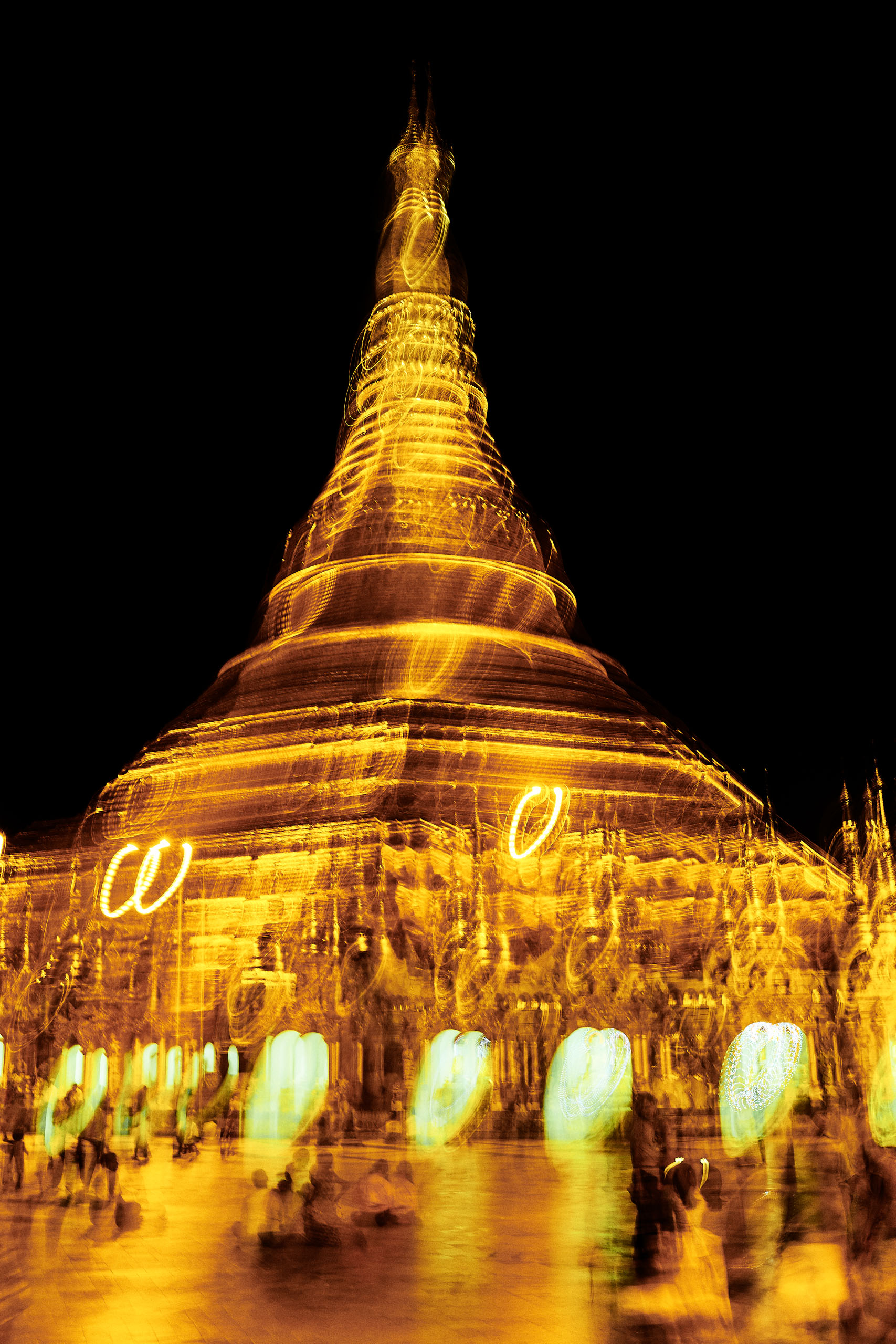
A King
A strong king. Ambitious. An unstoppable, confident, hardworking Buddhist. A holy man trying to be the most holy. One day the Maitreya? The wise and holy ones disagree, but their type always miss the messiahs. When they do see one, they almost never help. Their resistance shouldn’t discourage.
An educated king. Through reading and teachings from the old men, he learns about the benefits of wisdom and righteousness. Stories of power and wealth, joy and peace, greatness and nirvana, all granted disproportionately to the wise and righteous. He sees advantages in these qualities. The wise ones and their teachings become his only source trusted for wisdom.
A generous king. Constant donations to the monasteries return him plenty of praise and gratitude from the Sangha, despite their wariness of him. He puts holy men in positions of power and works to instill respect for them in his people. Every decision is advised by the wise, and none can be made until a holy one is found that will approve. As a gift for his support, the king is given a tooth of Gautama the Buddha, by a very distinguished elder monk.
An inspired king. He says for the tooth, a stupa should be built, and it should be the largest to exist. Wise ones are gathered to consult, a holy one is found that approves, and the king begins planning. It would be 150 meters high with a ninety-ton bell at the entrance. During planning he is told, by a son, about the Mahamuni being kept in Arakan and about the confidence he has in his soldiers. The capital is taken, and the statue is transported to the construction site, discretely through a hidden path in the forest, carried by several monks with a small group of soldiers to chaperone. The son also brings slaves to build.
A focused king. With everything in place, the son is put in charge of the kingdom, and the king moves to a small island offshore, to supervise as construction begins. The project is long and expensive. Workers die. Slaves escape. The people start to worry. Wise and holy ones begin to oppose construction, but the king already has approval and speaks to very few people on his island.
A superstitious king. Pressure on the son tightens, from his people, to end the project. In anticipation of his father’s stubbornness, the son enlists the wise and holy to endorse a prophecy. “When the stupa is complete, the kingdom will end and the king will die.” When the prophecy is heard, along with the list of those vouching its legitimacy, construction is ordered to slow almost to a halt until after the king’s natural death. He passes only a few years later. The stupa is never finished.
Nineteen years after his death, an earthquake splits what had been built in half, causing the bell to fall and the heads of two large statues, at the entrance, to break off and roll into the water. This happens before the stupa would ever have been finished. A small model of the completed pagoda still stands not far up the river.
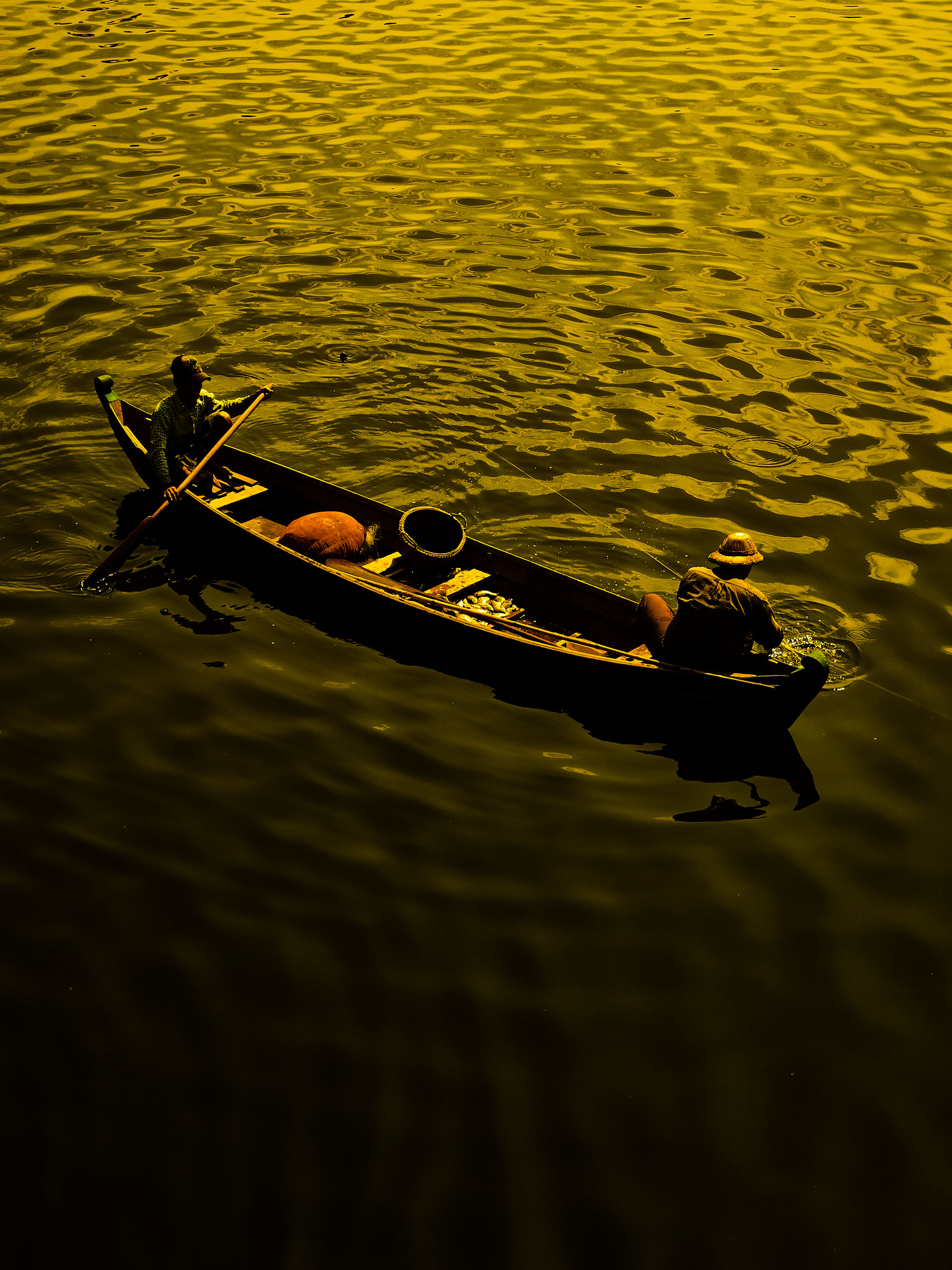
Thoughts On Water
Peace. Calm, quiet peace. Still, emptiness, free from earthly ties. Luxuries of death, never fully experienced anywhere else. Boring, cold, creeping, incurable peace. Wise people love it. They’re always speaking and writing about it; sharing their newest schemes to cheat death out of small portions of its prize, usually by giving up disproportionate amounts of their lives. They’re impatient; wasting life to play dead, being still, detached, thoughtless. Some even claim to fight for peace.
If you want peace then stop fighting. Let the opposition preside, conform. Life becomes very peaceful after surrender. A broken slave is the most comfortable slave. But for the unwise, who still haven’t figured out that it’s all pointless, that nothing actually matters; no one ever gets free, no one ever really changes anything; for these people, peace isn’t enough. These people want change, which comes less easy.
Peace is personal, dependent only on the one searching. It can’t be given, taken, or tampered with. Peace is selfish, only concerned for the peaceful. Change is for the stressed. It’s dependent on all the other fools who insist on trying, on continuing to live. Change is not personal. Change can’t help but be tampered with. It is the tampering. It’s a nearly impossible struggle to obtain, and inversely as easily taken. But for the unwise it’s all worth going through; struggle, stress, pain, loss, hate, war. Anything but peace.
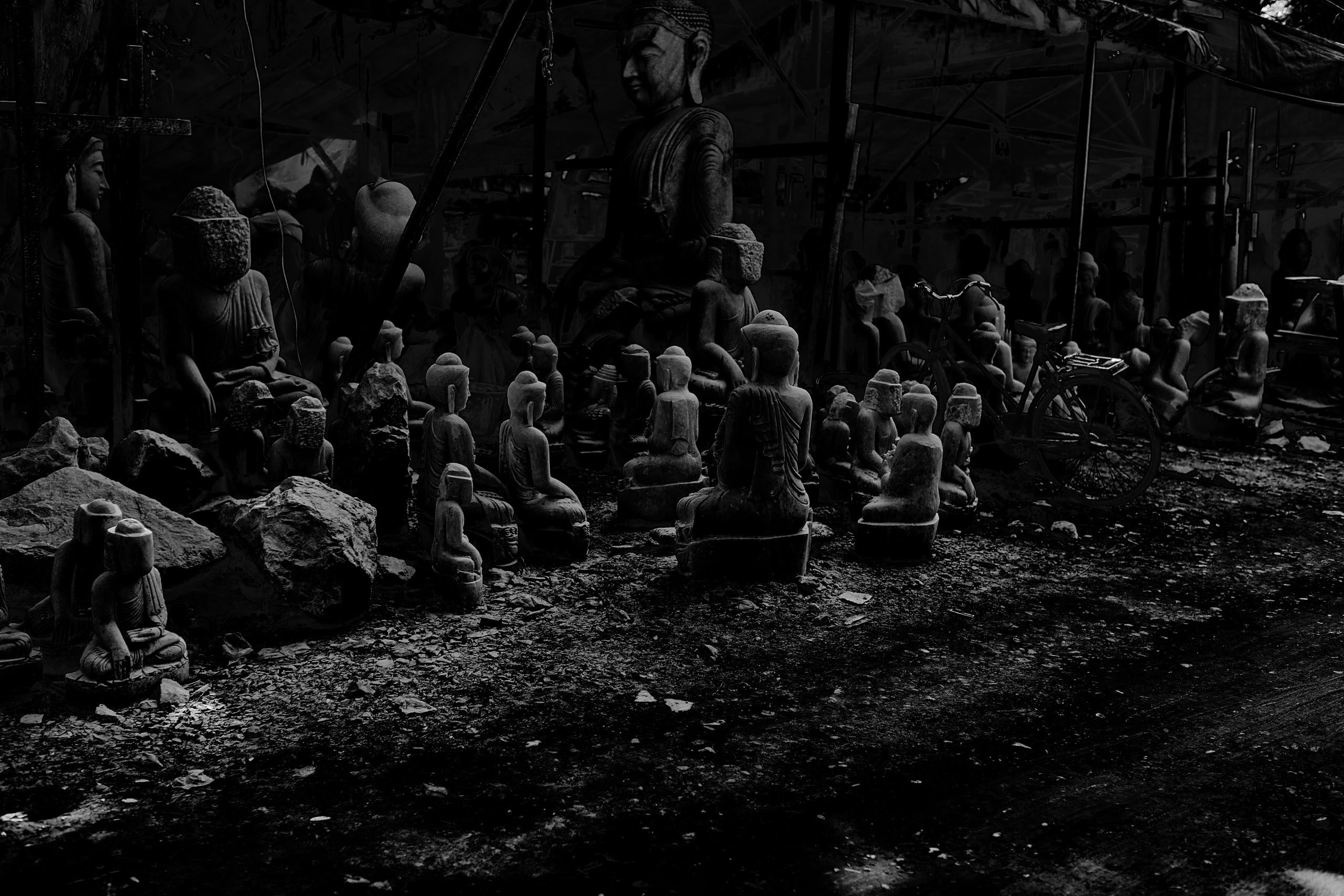
Funeral
Siddhartha died.
Holy men dig the hole, and a funeral is held. Everyone attends. The crowd acts calm and quiet, but never sad. A wooden box, topped with a layer of gold and covered in flowers, is lowered slowly into the ground while old men in robes hum and chant. The crowd is silent. The hole is filled, and a small wooden shrine is placed over the dirt. Candles are lit.
People in the crowd gradually begin leaving, but some stay longer. Some with children, trying their best to relay the significance of the moment. Some with robes and long stares, seeming almost to have no plans of ever leaving. Some holding shovels.
Once most of the crowd thins, the ones with shovels get anxious and quickly switch glares between the shrine and each other. A young man, skinny, in a dirty grey shirt, timidly takes the first few steps, holding his shovel tight. The others react. They walk slowly at first, each one shy to seem more eager than any other, but still determined to stay ahead of the rest. And the pace increases. And the people swarm. The ones in front brake just before the shrine while the slower behind keep racing to reach the spot they’ve stopped in. The dam of the quick bursts, and a wave of shovels and men wipes the shrine away, clearing the plot for ones still standing to dig. They all cut and bruise each other in the crowded frantic burrowing. Soon flowers are uncovered and quickly thrown to the side. The layer of gold is shredded by shovel tips. Finally robes wrapped around the body are ripped apart and stuffed in pockets. The Buddha is exposed. A quick pause.
One hand darts from the cluster and yanks his necklace. The band snaps and more hands lunge to catch the scattering beads. Other hands start pulling clumps of hair, and when the Buddha is bald, they pull from his mouth. Soon every part is torn from its socket. Large chunks are broken down. Hands become fingers, and even the nails alone become priceless relics.
Others watch from the side. Some of the faces look angry, some of them disgusted, some terrified. Small children bury faces in parents’ clothing while older ones try to peak through cracks in fingers of crying mothers. Wise and holy men look on in disappointment, but not surprise. As they secure their bit of flesh, each man leaves, one by one, with heads low as they pass through their audience.
The scene clears. Holy men calmly walk to the wreckage and rebuild the shrine in silence. Candles are relit. No one writes about it.
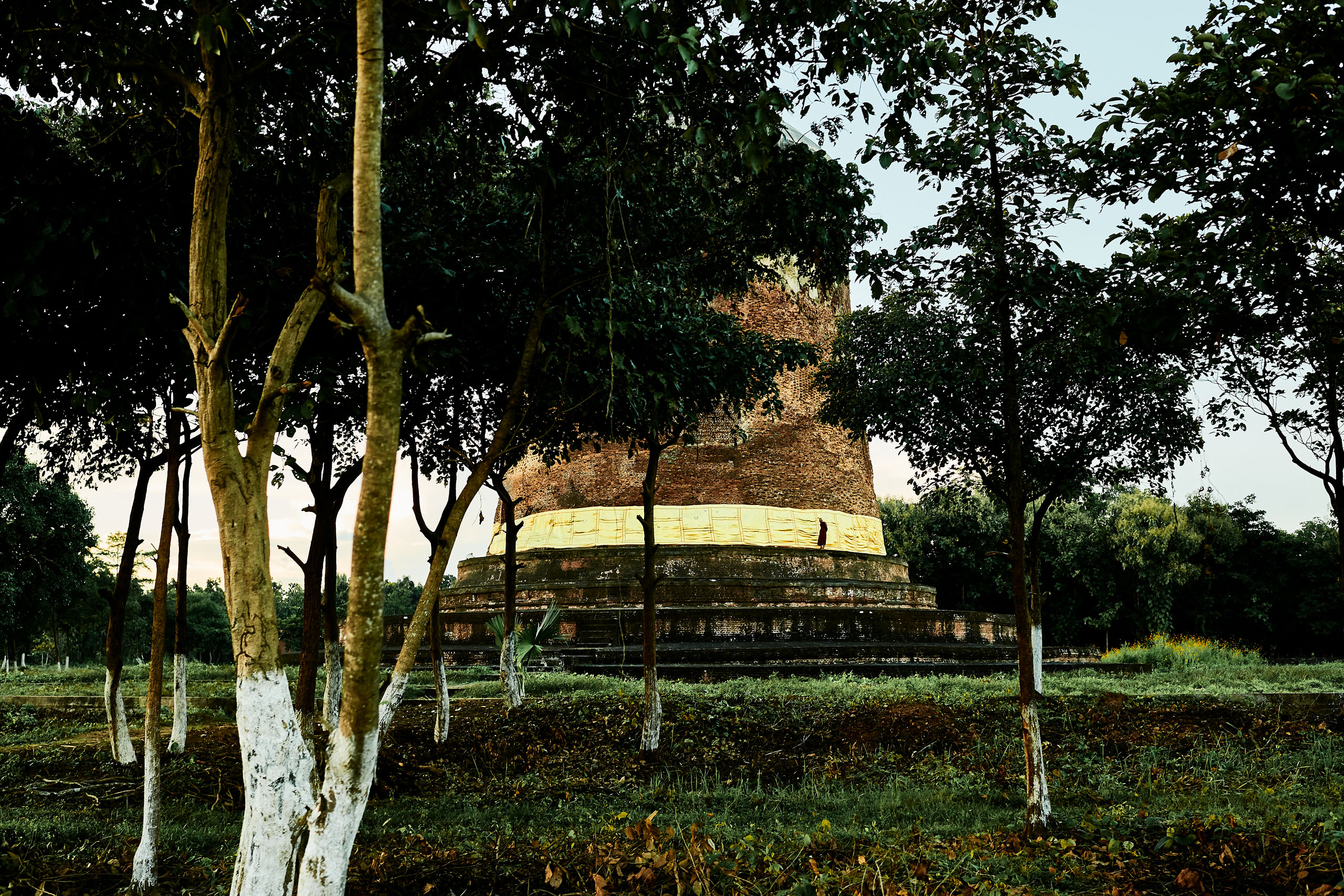
Personal Letter
Dear @#3%<
I’ve been watching the ruin and talking to some of the people, like a tourist would. The tooth has been gone for months already. They say a monkey took it on the day of the earthquake. Now some have started worshipping it. They’ve even built a shrine, with candles and fruit, at the base of a tree, about a mile from the ruin. I go every day, and ask if people have seen the monkey, like a tourist would. It hasn’t been there yet, only other monkeys coming for the fruit. Some say they’ve seen the monkey moving fast through the trees, holding a small brown bag in its teeth. I’ll keep you posted on the tooth.
I’ve also learned the route the monks plan on taking to transport the statue, and gathered some strong men to help, and a guide that can translate. They plan to move it in the coming week. Only a couple monks to carry the statue, and a higher-ranking monk for ceremony reasons. Shouldn’t be much trouble.
With love: %
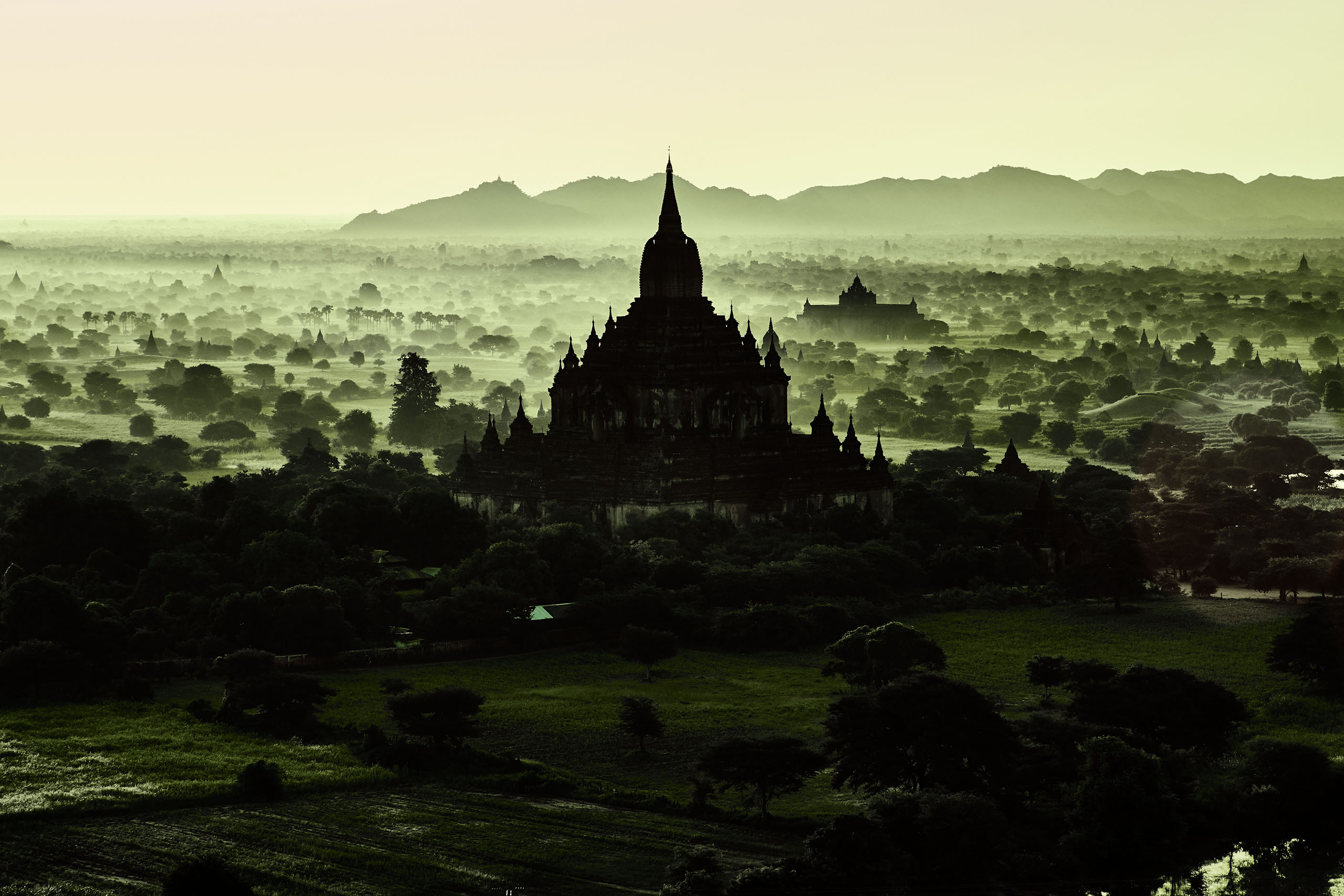
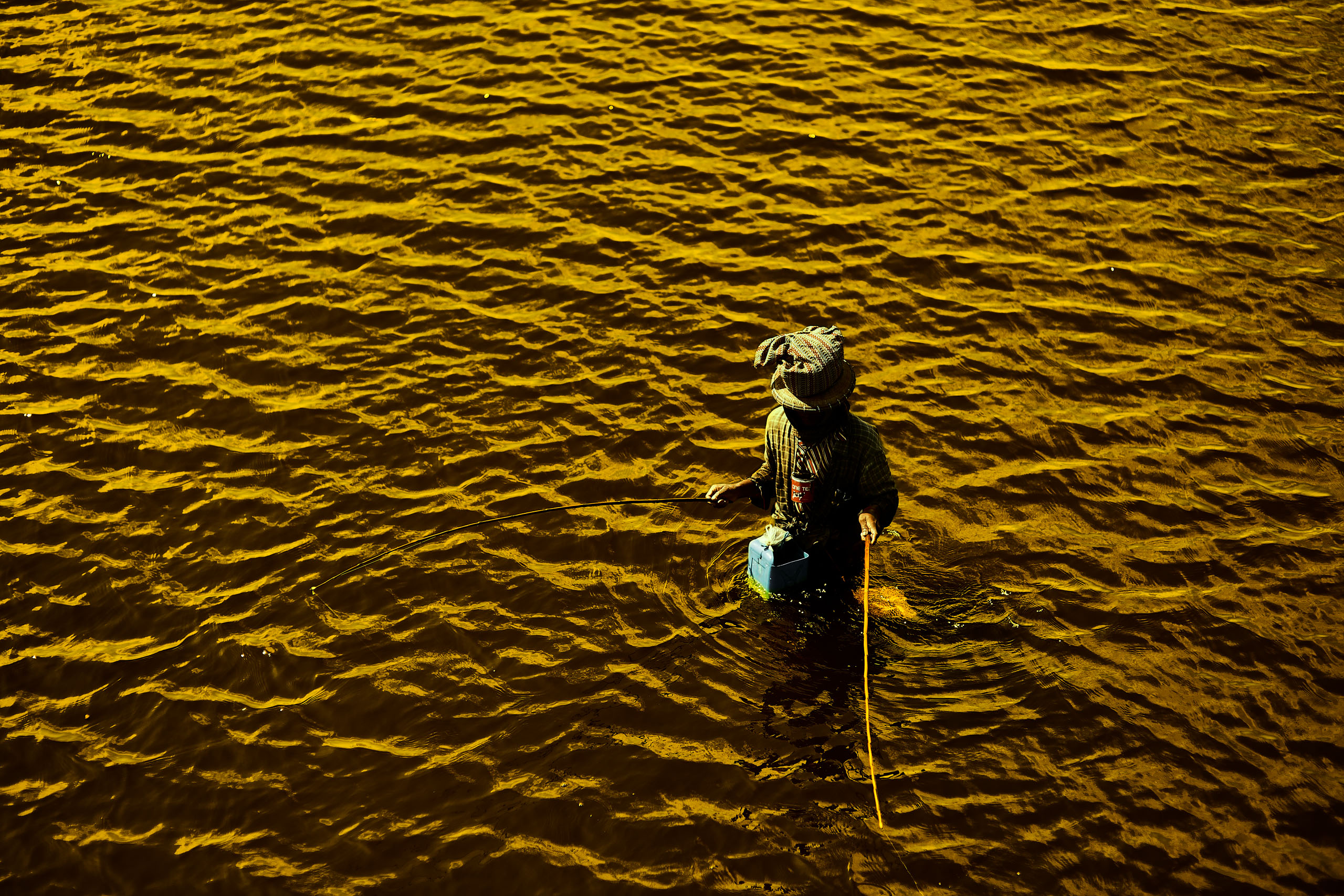
ANSWERING MACHINE, STORY OF THE FOREST A, MORNING SCENE, SWAMP, STORY OF THE FOREST B, POTTERY VILLAGE, ANTS, STORY OF THE FOREST C, PAGODA GUARD, A KING, THOUGHTS ON WATER, FUNERAL, PERSONAL LETTER
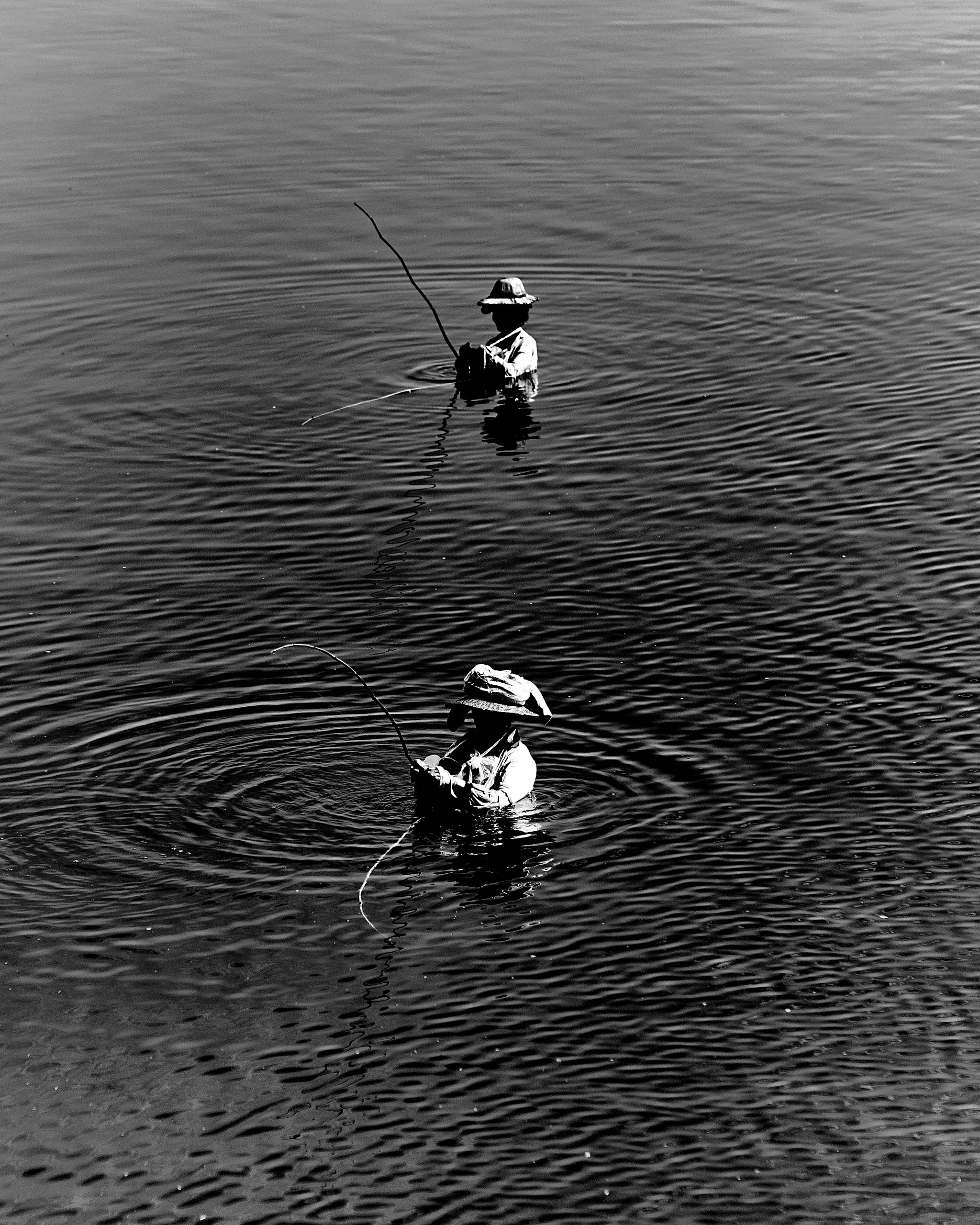 Additional track Blackwater2.wav
Additional track Blackwater2.wav